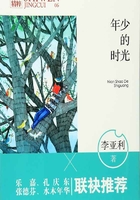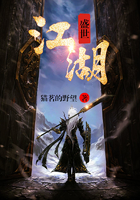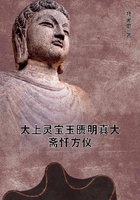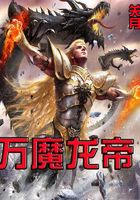THE sun rose upon a tranquil world, and beamed down upon the peaceful village like a benediction. Breakfast over, Aunt Polly had family worship: it began with a prayer built from the ground up of solid courses of Scriptural quotations, welded together with a thin mortar of originality; and from the summit of this she delivered a grim chapter of the Mosaic Law, as from Sinai.
Then Tom girded up his loins, so to speak, and went to work to "get his verses." Sid had learned his lesson days before. Tom bent all his energies to the memorizing of five verses, and he chose part of the Sermon on the Mount, because he could find no verses that were shorter. At the end of half an hour Tom had a vague general idea of his lesson, but no more, for his mind was traversing the whole field of human thought, and his hands were busy with distracting recreations. Mary took his book to hear him recite, and he tried to find his way through the fog:
"Blessed are the—a—a—"
"Poor"—
"Yes—poor; blessed are the poor—a—a—"
"In spirit—"
"In spirit; blessed are the poor in spirit, for they—they—"
"Theirs—"
"For theirs. Blessed are the poor in spirit, for theirs is the kingdom of heaven. Blessed are they that mourn, for they—they—"
"Sh—"
"For they—a—"
"S, H, A—"
"For they S, H—Oh, I don't know what it is!"
"Shall!"
"Oh, shall! for they shall—for they shall—a—a—shall mourn—a—a—blessed are they that shall—they that—a—they that shall mourn, for they shall—a—shall what? Why don't you tell me, Mary?—what do you want to be so mean for?"
"Oh, Tom, you poor thick-headed thing, I'm not teasing you. I wouldn't do that. You must go and learn it again. Don't you be discouraged, Tom, you'll manage it—and if you do, I'll give you something ever so nice. There, now, that's a good boy."
"All right! What is it, Mary, tell me what it is."
"Never you mind, Tom. You know if I say it's nice, it is nice."
"You bet you that's so, Mary. All right, I'll tackle it again."
And he did "tackle it again"—and under the double pressure of curiosity and prospective gain he did it with such spirit that he accomplished a shining success. Mary gave him a brand-new "Barlow" knife worth twelve and a half cents; and the convulsion of delight that swept his system shook him to his foundations. True, the knife would not cut anything, but it was a "sure-enough" Barlow, and there was inconceivable grandeur in that—though where the Western boys ever got the idea that such a weapon could possibly be counterfeited to its injury is an imposing mystery and will always remain so, perhaps. Tom contrived to scarify the cupboard with it, and was arranging to begin on the bureau, when he was called off to dress for Sunday-school.
Mary gave him a tin basin of water and a piece of soap, and he went outside the door and set the basin on a little bench there; then he dipped the soap in the water and laid it down; turned up his sleeves; poured out the water on the ground, gently, and then entered the kitchen and began to wipe his face diligently on the towel behind the door. But Mary removed the towel and said:
"Now ain't you ashamed, Tom. You mustn't be so bad. Water won't hurt you."
Tom was a trifle disconcerted. The basin was refilled, and this time he stood over it a little while, gathering resolution; took in a big breath and began. When he entered the kitchen presently, with both eyes shut and groping for the towel with his hands, an honorable testimony of suds and water was dripping from his face. But when he emerged from the towel, he was not yet satisfactory, for the clean territory stopped short at his chin and his jaws, like a mask; below and beyond this line there was a dark expanse of unirrigated soil that spread downward in front and backward around his neck. Mary took him in hand, and when she was done with him he was a man and a brother, without distinction of color, and his saturated hair was neatly brushed, and its short curls wrought into a dainty and symmetrical general effect. Then Mary got out a suit of his clothing that had been used only on Sundays during two years—they were simply called his "other clothes"—and so by that we know the size of his wardrobe. The girl "put him to rights" after he had dressed himself; she buttoned his neat roundabout up to his chin, turned his vast shirt collar down over his shoulders, brushed him off and crowned him with his speckled straw hat. He now looked exceedingly improved and uncomfortable. He was fully as uncomfortable as he looked; for there was a restraint about whole clothes and cleanliness that galled him. He hoped that Mary would forget his shoes, but the hope was blighted; she coated them thoroughly with tallow, as was the custom, and brought them out. He lost his temper and said he was always being made to do everything he didn't want to do. But Mary said, persuasively:
"Please, Tom—that's a good boy."
So he got into the shoes snarling. Mary was soon ready, and the three children set out for Sunday-school—a place that Tom hated with his whole heart; but Sid and Mary were fond of it.
Sabbath-school hours were from nine to half-past ten; and then church service. Two of the children always remained for the sermon voluntarily, and the other always remained too—for stronger reasons. The church's high-backed, uncushioned pews would seat about three hundred persons; the edifice was but a small, plain affair, with a sort of pine board tree-box on top of it for a steeple. At the door Tom dropped back a step and accosted a Sunday-dressed comrade:
"Say, Billy, got a yaller ticket?"
"Yes."
"What'll you take for her?"
"What'll you give?"
"Piece of lickrish and a fish-hook."
"Less see 'em."
Tom exhibited. They were satisfactory, and the property changed hands. Then Tom traded a couple of white alleys for three red tickets, and some small trifle or other for a couple of blue ones. He waylaid other boys as they came, and went on buying tickets of various colors ten or fifteen minutes longer. He entered the church, now, with a swarm of clean and noisy boys and girls, proceeded to his seat and started a quarrel with the first boy that came handy. The teacher, a grave, elderly man, interfered; then turned his back a moment and Tom pulled a boy's hair in the next bench, and was absorbed in his book when the boy turned around; stuck a pin in another boy, presently, in order to hear him say "Ouch!" and got a new reprimand from his teacher. Tom's whole class were of a pattern—restless, noisy, and troublesome. When they came to recite their lessons, not one of them knew his verses perfectly, but had to be prompted all along. However, they worried through, and each got his reward—in small blue tickets, each with a passage of Scripture on it; each blue ticket was pay for two verses of the recitation. Ten blue tickets equalled a red one, and could be exchanged for it; ten red tickets equalled a yellow one; for ten yellow tickets the superintendent gave a very plainly bound Bible (worth forty cents in those easy times) to the pupil. How many of my readers would have the industry and application to memorize two thousand verses, even for a Dore Bible? And yet Mary had acquired two Bibles in this way—it was the patient work of two years—and a boy of German parentage had won four or five. He once recited three thousand verses without stopping; but the strain upon his mental faculties was too great, and he was little better than an idiot from that day forth—a grievous misfortune for the school, for on great occasions, before company, the superintendent (as Tom expressed it) had always made this boy come out and "spread himself." Only the older pupils managed to keep their tickets and stick to their tedious work long enough to get a Bible, and so the delivery of one of these prizes was a rare and noteworthy circumstance; the successful pupil was so great and conspicuous for that day that on the spot every scholar's heart was fired with a fresh ambition that often lasted a couple of weeks. It is possible that Tom's mental stomach had never really hungered for one of those prizes, but unquestionably his entire being had for many a day longed for the glory and the eclat that came with it.
In due course the superintendent stood up in front of the pulpit, with a closed hymn-book in his hand and his forefinger inserted between its leaves, and commanded attention. When a Sunday-school superintendent makes his customary little speech, a hymn-book in the hand is as necessary as is the inevitable sheet of music in the hand of a singer who stands forward on the platform and sings a solo at a concert—though why, is a mystery: for neither the hymn-book nor the sheet of music is ever referred to by the sufferer. This superintendent was a slim creature of thirty-five, with a sandy goatee and short sandy hair; he wore a stiff standing-collar whose upper edge almost reached his ears and whose sharp points curved forward abreast the corners of his mouth—a fence that compelled a straight lookout ahead, and a turning of the whole body when a side view was required; his chin was propped on a spreading cravat which was as broad and as long as a bank-note, and had fringed ends; his boot toes were turned sharply up, in the fashion of the day, like sleigh-runners—an effect patiently and laboriously produced by the young men by sitting with their toes pressed against a wall for hours together. Mr. Walters was very earnest of mien, and very sincere and honest at heart; and he held sacred things and places in such reverence, and so separated them from worldly matters, that unconsciously to himself his Sunday-school voice had acquired a peculiar intonation which was wholly absent on week-days. He began after this fashion:
"Now, children, I want you all to sit up just as straight and pretty as you can and give me all your attention for a minute or two. There—that is it. That is the way good little boys and girls should do. I see one little girl who is looking out of the window—I am afraid she thinks I am out there somewhere—perhaps up in one of the trees making a speech to the little birds. I want to tell you how good it makes me feel to see so many bright, clean little faces assembled in a place like this, learning to do right and be good." And so forth and so on. It is not necessary to set down the rest of the oration. It was of a pattern which does not vary, and so it is familiar to us all.
The latter third of the speech was marred by the resumption of fights and other recreations among certain of the bad boys, and by fidgetings and whisperings that extended far and wide, washing even to the bases of isolated and incorruptible rocks like Sid and Mary. But now every sound ceased suddenly, with the subsidence of Mr. Walters' voice, and the conclusion of the speech was received with a burst of silent gratitude.
A good part of the whispering had been occasioned by an event which was more or less rare—the entrance of visitors: lawyer Thatcher, accompanied by a very feeble and aged man; a fine, portly, middle-aged gentleman with iron-gray hair; and a dignified lady who was doubtless the latter's wife. The lady was leading a child. Tom had been restless and full of chafings and repinings; conscience-smitten, too—he could not meet Amy Lawrence's eye, he could not brook her loving gaze. But when he saw this small newcomer his soul was all ablaze with bliss in a moment. The next moment he was "showing off" with all his might—cuffing boys, pulling hair, making faces—in a word, using every art that seemed likely to fascinate a girl and win her applause. His exaltation had but one alloy—the memory of his humiliation in this angel's garden—and that record in sand was fast washing out, under the waves of happiness that were sweeping over it now.
The visitors were given the highest seat of honor, and as soon as Mr. Walters' speech was finished, he introduced them to the school. The middle-aged man turned out to be a prodigious personage—no less a one than the county judge—altogether the most august creation these children had ever looked upon—and they wondered what kind of material he was made of—and they half wanted to hear him roar, and were half afraid he might, too. He was from Constantinople, twelve miles away—so he had travelled, and seen the world—these very eyes had looked upon the county court-house—which was said to have a tin roof. The awe which these reflections inspired was attested by the impressive silence and the ranks of staring eyes. This was the great Judge Thatcher, brother of their own lawyer. Jeff Thatcher immediately went forward, to be familiar with the great man and be envied by the school. It would have been music to his soul to hear the whisperings:
"Look at him, Jim! He's a going up there. Say—look! he's a going to shake hands with him—he is shaking hands with him! By jings, don't you wish you was Jeff?"
Mr. Walters fell to "showing off," with all sorts of official bustlings and activities, giving orders, delivering judgments, discharging directions here, there, everywhere that he could find a target. The librarian "showed off"—running hither and thither with his arms full of books and making a deal of the splutter and fuss that insect authority delights in. The young lady teachers "showed off"—bending sweetly over pupils that were lately being boxed, lifting pretty warning fingers at bad little boys and patting good ones lovingly. The young gentlemen teachers "showed off" with small scoldings and other little displays of authority and fine attention to discipline—and most of the teachers, of both sexes, found business up at the library, by the pulpit; and it was business that frequently had to be done over again two or three times (with much seeming vexation). The little girls "showed off" in various ways, and the little boys "showed off" with such diligence that the air was thick with paper wads and the murmur of scufflings. And above it all the great man sat and beamed a majestic judicial smile upon all the house, and warmed himself in the sun of his own grandeur—for he was "showing off," too.
There was only one thing wanting to make Mr. Walters' ecstasy complete, and that was a chance to deliver a Bible-prize and exhibit a prodigy. Several pupils had a few yellow tickets, but none had enough—he had been around among the star pupils inquiring. He would have given worlds, now, to have that German lad back again with a sound mind.
And now at this moment, when hope was dead, Tom Sawyer came forward with nine yellow tickets, nine red tickets, and ten blue ones, and demanded a Bible. This was a thunderbolt out of a clear sky. Walters was not expecting an application from this source for the next ten years. But there was no getting around it—here were the certified checks, and they were good for their face. Tom was therefore elevated to a place with the Judge and the other elect, and the great news was announced from headquarters. It was the most stunning surprise of the decade, and so profound was the sensation that it lifted the new hero up to the judicial one's altitude, and the school had two marvels to gaze upon in place of one. The boys were all eaten up with envy—but those that suffered the bitterest pangs were those who perceived too late that they themselves had contributed to this hated splendor by trading tickets to Tom for the wealth he had amassed in selling whitewashing privileges. These despised themselves, as being the dupes of a wily fraud, a guileful snake in the grass.
The prize was delivered to Tom with as much effusion as the superintendent could pump up under the circumstances; but it lacked somewhat of the true gush, for the poor fellow's instinct taught him that there was a mystery here that could not well bear the light, perhaps; it was simply preposterous that this boy had warehoused two thousand sheaves of Scriptural wisdom on his premises—a dozen would strain his capacity, without a doubt.
Amy Lawrence was proud and glad, and she tried to make Tom see it in her face—but he wouldn't look. She wondered; then she was just a grain troubled; next a dim suspicion came and went—came again; she watched; a furtive glance told her worlds—and then her heart broke, and she was jealous, and angry, and the tears came and she hated everybody. Tom most of all (she thought).
Tom was introduced to the Judge; but his tongue was tied, his breath would hardly come, his heart quaked—partly because of the awful greatness of the man, but mainly because he was her parent. He would have liked to fall down and worship him, if it were in the dark. The Judge put his hand on Tom's head and called him a fine little man, and asked him what his name was. The boy stammered, gasped, and got it out:
"Tom."
"Oh, no, not Tom—it is—"
"Thomas."
"Ah, that's it. I thought there was more to it, maybe. That's very well. But you've another one I daresay, and you'll tell it to me, won't you?"
"Tell the gentleman your other name, Thomas," said Walters, "and say sir. You mustn't forget your manners."
"Thomas Sawyer—sir."
"That's it! That's a good boy. Fine boy. Fine, manly little fellow. Two thousand verses is a great many—very, very great many. And you never can be sorry for the trouble you took to learn them; for knowledge is worth more than anything there is in the world; it's what makes great men and good men; you'll be a great man and a good man yourself, some day, Thomas, and then you'll look back and say, It's all owing to the precious Sunday-school privileges of my boyhood—it's all owing to my dear teachers that taught me to learn—it's all owing to the good superintendent, who encouraged me, and watched over me, and gave me a beautiful Bible—a splendid elegant Bible—to keep and have it all for my own, always—it's all owing to right bringing up! That is what you will say, Thomas—and you wouldn't take any money for those two thousand verses—no indeed you wouldn't. And now you wouldn't mind telling me and this lady some of the things you've learned—no, I know you wouldn't—for we are proud of little boys that learn. Now, no doubt you know the names of all the twelve disciples. Won't you tell us the names of the first two that were appointed?"
Tom was tugging at a button-hole and looking sheepish. He blushed, now, and his eyes fell. Mr. Walters' heart sank within him. He said to himself, it is not possible that the boy can answer the simplest question—why did the Judge ask him? Yet he felt obliged to speak up and say:
"Answer the gentleman, Thomas—don't be afraid."
Tom still hung fire.
"Now I know you'll tell me," said the lady. "The names of the first two disciples were—"
"David And Goliah!"
Let us draw the curtain of charity over the rest of the scene.














